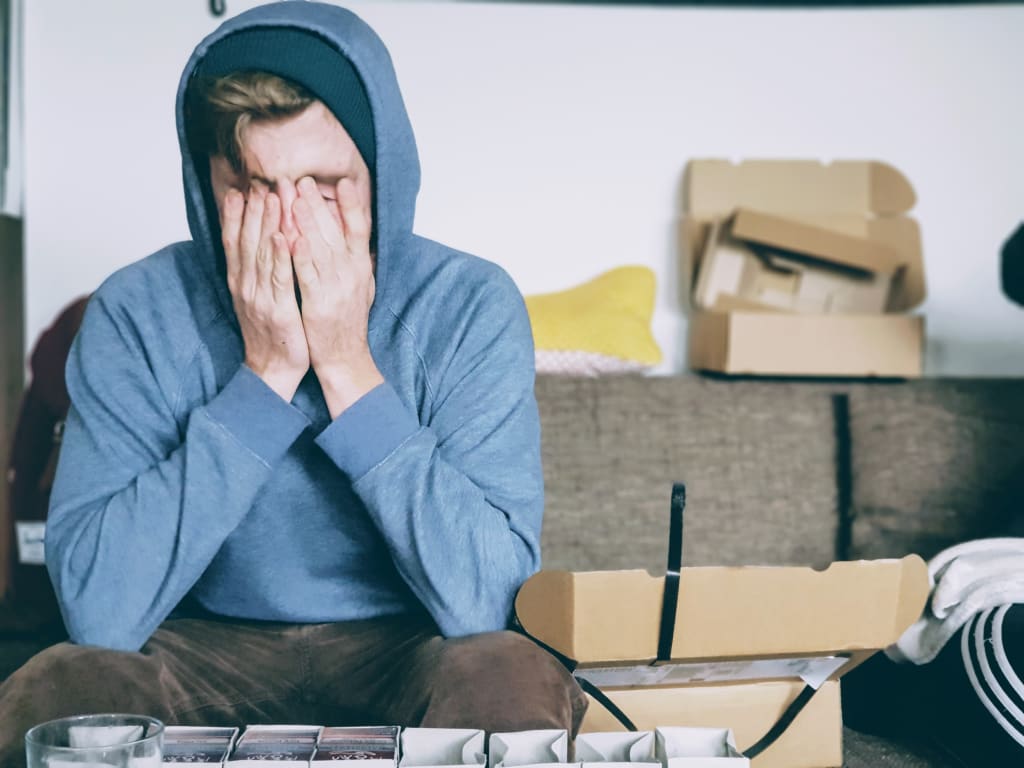Helping Someone with Post Traumatic Stress Disorder
As a person with Post Traumatic Stress Disorder myself, I have seen how difficult this can be for the sufferer and the people close to them. This article contains advice on how to help a loved one through the Trauma, enabling them to help themselves and feel that somebody is there for them.

Post Traumatic Stress Disorder is not an easy condition to live with, either for the sufferer or the family. When I have a Post Traumatic attack, the way in which I can react can be unpredictable, and this can be stressful for myself, my other half, and my entire family. I can go for days, months, and even years and feel well; however, out of the blue that can change quickly. During an attack, I am moody, anxious, depressed, afraid, my perception changes, and I can be very sensitive to certain events.
I am going to give an example of a trigger leading to an attack, followed by my response to that trigger. Every couple argues and disagrees; however, I can become so scared of these arguments, that it only takes a raised voice or an angry face to trigger an attack. During that time, I become afraid and I panic. I develop a sense of danger and feel as though I am being attacked, and I can react by becoming tearful, argumentative, and worked up, only I don't know that I am reacting this way. My head will be completely stuck in my violent past where I was attacked and my present becomes distorted. This is just one example. A lot of the time I will not know how I am going to react, and sometimes it will start with an anxiety attack or a total blackout, which is when the past event is being relived in my mind, and I will freeze, this is most severe when I cross a road or I am faced with fire. After the attack, I will become depressed and tearful for weeks, and I lose motivation to do anything, followed by really nasty periods of insomnia mixed in with severe periods of over-sleeping.
This condition causes severe friction in my relationships, in which I am often misunderstood, and with the family who become worried about me and frustrated as to how to react to me, because no matter what they try, sometimes they cannot help me, or don't understand why I feel the way I do.
When it comes to helping me, several things can make it worse. They are as follows:
- Shouting
- Calling me names
- Aggressive/ angry behavior towards me
- Threats or the use of violence
- Comments such as "This is embarrassing"
- Giving me the silent treatment/avoiding me after an attack.
The reason I am triggered by these reactions is because abusive and violent behaviour from my past caused my Post Traumatic Stress Disorder in the first place; therefore, when someone behaves like this towards me, it makes me feel as though I am being attacked again and triggers a reactive response, which is to do with the fight or flight response activating the defense mechanism, not to purposefully set out to hurt others, but in order to protect myself. I am not always aware of this reaction, because it is impulsive and often out of my control in the middle of an attack.
My Post Traumatic Stress Disorder also means I have symptoms of anxiety, depression, and I can get stressed out easily. During these times, life can feel chaotic to me, and I find it hard to manage things like appointments and housework. Forgetfulness is a big problem, even when I write things down, I can still forget and I do need reminders during that time. Managing housework becomes stressful. I live in a big house with two large, very chaotic gardens, and I do not manage these well during times when I am not well, and I need extra help with these things. It is not helpful to perceive someone with this disorder as lazy during these times. We are not lazy, when we are well we cope well, but when we are unwell, we need supporting and to be approached with a caring nature. However, we may feel like a burden and like we are depending too much on others, but it is important to us to let us know you are there and willing to lend a helping hand in a calm manner, even if we push you away. During this time you could:
- Help out with housework whenever you can.
- Give us space and time we need to feel better.
- Allow us to do one thing at a time, and do not push.
- Encourage us to do things we enjoy.
- Don't be overly critical.
- Do not constantly point out that we have a problem.
The bottom point in this list is problematic for me because when people point out that I have a problem, I find it frustrating and it can put me off getting the help that I need. It is ok to bring up and address the issue; however, rather than constant reminders, I find it helps when someone tries to help me find a solution and point me in the direction of help and support, which could be anything from visiting the doctor with me or engaging in therapeutic activities such as going for a walk in nature. My previous article "Mindfulness in Nature" explains how this benefits mental health.
To end this article, I want to say that often I am told that I am responsible for my mental health. This is true to recovery, but try not to make a person with Post Traumatic Disorder feel bad by saying things like "it is in your past," "Get over it," and "move on." Such comments are stigmatizing for people who have been through traumatic events. Some of these events such as Domestic Violence, car accidents, seeing someone die, and being caught in a fire can be extremely severe and very distressing to the person who witnessed it. These memories, unlike a broken leg, can last a lifetime, and a person may only be able to manage them through talking and therapy. This is not a cure. It does not mean the events suddenly get erased from one's memory. It just means that a person will have a set of tools to help manage them, but like everybody, they will have good days and bad days. Don't expect a person to cope every day, and don't point out to them that they are "mentally ill again" every time they have a bad day. The Disorder does not go away completely. Like with some other mental health problems, it leaves triggers and traits. This means that when you choose to start a relationship or to stay involved with a person with the Disorder, you will need to be in a position where you can accept the person as a whole, understanding that they will never be 100 percent well. A person with any mental illness will find it stressful if a partner chooses to get involved with them, then walks away when the going gets tough. This is why you need to be prepared and make sure that you know how to help someone with the condition. Post Traumatic Stress Disorder does not make anyone unlovable or unable to be loved. It just means that there will be many challenges involved in the relationship, and both partners may need additional support, and that is ok, because "it is ok to not be ok."
About the Creator
Carol Townend
Fiction, Horror, Sex, Love, Mental Health, Children's fiction and more. You'll find many stories in my profile. I don't believe in sticking with one Niche! I write, but I also read a lot too.






Comments
There are no comments for this story
Be the first to respond and start the conversation.